Why Is My Furnace Running, But No Heat?
Your furnace plays a crucial part in keeping your house warm and cozy throughout the winter. Still, it can be confusing if your furnace runs constantly but doesn't produce the ideal quantity of heat. Our goal in this blog is to help you tackle this problem by looking at the typical causes for this type of issue. Ultimately, understanding these possible causes will enable you to identify and address this issue more effectively, guaranteeing that your furnace will function efficiently when you need it most.
So, if you want to learn more about this topic, keep reading!
Why Is My Furnace Running but Still Cold?
It can be very annoying to have a running furnace that doesn't produce heat, especially in winter when outdoor temperatures drop. The following are some typical causes you may be experiencing:
· Thermostat setting: Make sure the thermostat is set to the appropriate temperature by checking its settings. An accidental adjustment or a dead battery might occasionally cause your cooling rather than heating.
· Clogged filters: When airflow is restricted due to dirty or blocked air filters, the furnace may overheat and cut off the burners as a safety precaution.
· Problems with the pilot light or ignition: Burners in gas furnaces may not light due to a broken pilot light or ignition system. The fan may run as a result of no generated heat.
· Fuel supply: Ensure that the gas supply to your gas furnace is constant if you have one. A break in the gas supply may keep the burners from starting.
· Issues with blower motors: Problems with the blower motor, like a broken or outdated belt, might make the furnace run but result in inefficient warm air circulation.
· Problems with ductwork: Heat loss from leaky or inadequately insulated ductwork can lower your furnace's efficiency. Maintaining clean, well-maintained ducts is crucial.
· Issues with the flame sensor: The flame sensor in gas furnaces is susceptible to dirt buildup or malfunction. An unclean sensor could fail to identify the flame, resulting in an early furnace shutdown.
· Electrical issues: When the process of heating is interrupted by defective wiring or electrical parts, the furnace will run but not generate heat.
· Safety features: In the event of a malfunction, such as overheating, furnace safeguards have the ability to turn the system off.
How Do You Fix a Furnace That Is Not Heating?
Before calling a professional, troubleshooting a non-heating furnace might help you determine and perhaps fix the problem. Here's how to do so:
1. Examine your thermostat: Make sure "heat" and the appropriate temperature are selected on the thermostat. Confirm that the thermostat is powered on and change the batteries if needed. To see whether the furnace starts up, try turning the temperature up by a couple notches.
2. Examine the air filter: A filthy or clogged filter can impede airflow and have an impact on the heating system. Hire a professional to replace this.
3. Check the Power Source: Verify that the furnace is powered. Examine the furnace's power switch and circuit breaker and reset it if needed.
4. Analyze the ignition or pilot light system: Verify that the pilot light is lit on gas furnaces. If not, call a technician to relight it.
5. Examine the Gas Supply: Make sure there is a constant supply of gas. A break in the gas supply may keep the burners from lighting.
6. Examine the wiring of the thermostat: Make sure the thermostat wires are firmly attached to the appropriate terminals on the furnace and thermostat. Transmission might be hampered by loose or broken wire.
7. Clean the Gas Furnace Flame Sensor: The furnace may shut off as a result of a filthy flame sensor. Have a technician clean it.
8. Examine the ductwork: Look for any apparent damage or disconnections in the ductwork. Heat loss may result from ducts that are leaky or insufficiently insulated.
If your furnace is still not producing warm air after following these troubleshooting steps, it’s essential that you reach out to a professional HVAC technician in your area to have it professionally repaired.
Can Extreme Cold Cause Furnace Not to Work?
Absolutely, really low temperatures can affect how well your furnace runs. Furnace problems can result from many low-temperature-related factors, such as:
· Ice on exhaust and intake pipes: Your furnace's exhaust and intake pipes may get frozen due to moisture in the emissions during extremely cold weather. This accumulation of ice has the potential to obstruct airflow, impair furnace function, and even trigger an emergency stop.
· Frozen condensate lines: In freezing weather, condensate pipes on high-efficiency gas furnaces may freeze. Condensate backup from this may set off a safety switch, potentially shutting off the furnace.
· Overworking the furnace: To keep your home at the ideal temperature during extreme weather conditions, your furnace must operate harder and longer. This extended operation may increase the system's stress and cause problems or failures.
· Air Leaks: Your furnace may have a hard time maintaining a constant inside temperature if there are chilly drafts or air leaks near windows, doors, or in the attic. As a result, the furnace might run longer than is necessary, causing excessive wear and tear.
If your furnace breaks down in the middle of winter, get in touch with a licensed HVAC technician so they can quickly diagnose and fix the problem. Even in the coldest winter conditions, your furnace can run efficiently with routine maintenance and preventative actions.
It can be really problematic when a furnace isn't heating, especially during cold weather periods. Thermostat malfunctions, clogged filters, ignition troubles, fuel supply disruptions, blower motor troubles, ductwork troubles, flame sensor malfunctions, electrical problems, and safety feature triggers are among the frequent causes of this type of problem.
If this is something you're dealing with, reach out to the team at Mr. Furnace Heating and Air Conditioning to schedule a repair appointment with one of our certified and experienced HVAC technicians. We're available 24/7/365 days a year, including after-hours, weekends, and holidays at no extra cost!
Book online or give us a call today!




